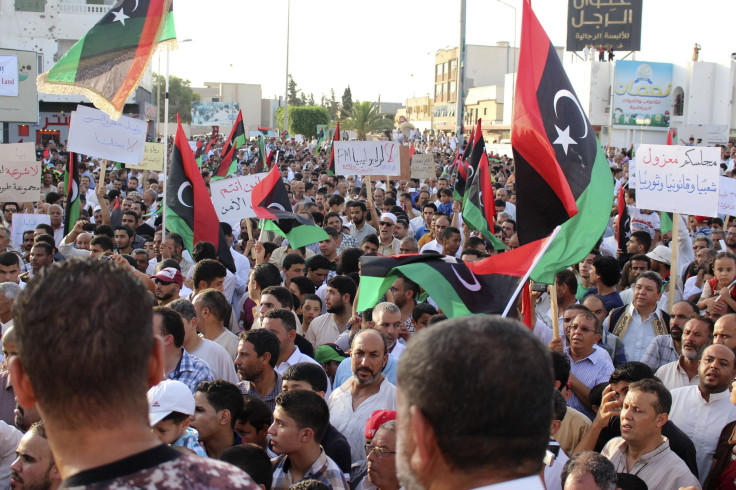Libya's Tripoli Sees Unidentified Warplanes, Explosions While UN Condemns Violence

Unidentified war planes flew over Tripoli on Monday while explosions were heard in the Libyan capital, according to local news agencies. The United Nations, or the U.N., on Sunday had condemned the ongoing violence in Libya.
Reports, citing residents, said that the planes targeted specific sites in Tripoli where rival militias, which do not recognize the current government, have been waging a weeks-long battle for control of crucial sites like the city's airport. However, according to Reuters, which cited local news agencies, the warring militia groups do not possess military planes.
The U.N. Mission in Libya appointed Bernardino León as a special representative to the country, who is expected to travel to Tripoli early next week, and condemned the constant violence in Tripoli and Benghazi, and appealed to the warring sides to reach a truce. Locals disapprove of foreign intervention in the ongoing unrest and have protested against Tripoli's decision last Wednesday to call on the U.N. Security Council to help protect civilians.
The U.N. said in a statement Sunday that it "strongly denounced the shelling of residential neighbourhoods, which has inflicted casualties among civilians, forced them out of their homes and caused damage to property." The statement added that the U.N. regrets that until now there has been “no response to the repeated international appeals" and its own efforts of attaining an “immediate ceasefire” in the region.
Libya's economy, which is hugely dependent on oil revenues, has seen a drop in production levels to 470,000 barrels a day from the 1.4 million barrels it used to produce before July 2013. The country has been embroiled in clashes since 2011 when an uprising brought down the country's longtime ruler, Moammar Gadhafi. Tripoli’s international airport, which is controlled by militias from the western city of Zintan, has been the scene of constant clashes, with the latest one, earlier this month, having killed 22 people.
Clashes between warring factions in Tripoli and Benghazi have forced Western countries like the U.S. and UK to evacuate their personnel from the region. The U.S. shut down its embassy in Tripoli in July while the British embassy announced earlier this month that it has suspended operations there and urged its citizens to move out of Libya immediately.
© Copyright IBTimes 2025. All rights reserved.






















